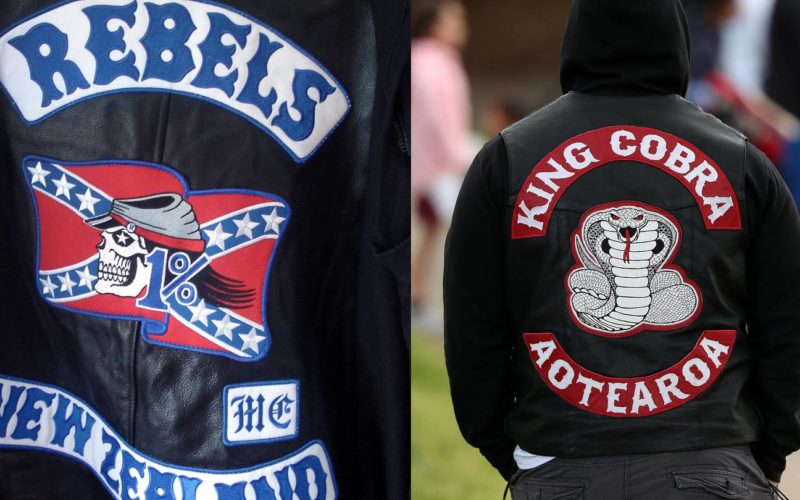Counties Manukau Detective Inspector Chris Barry noted that turf war between King Cobras and Rebels MC led to eye-to-eye violence, where houses, cars, and businesses were fired upon or pelted with Molotov cocktails.
Police call on leaders of both warring parties to hold peace talks and end the conflict and to prevent irreparable consequences or even deaths.
Since the beginning of May, there have been 12 attacks related to this hostility, and this is just what the police know, the attacks can be much more because the warring parties comply with the criminal code.
Barry said two teams of detectives were working full time, raiding homes of patched members and associates of both sides of the conflict.
Previously Barry said that there is the first detainee in this case.
Police know the first attack related to the turf war that took place in east Māngere on May 7.
A man who appeared in the Manukau District Court is charged with willful damage to property with an explosive, in relation to the firebombing of a King Cobra’s car.
He was also charged with possession and distribution of methamphetamine and involvement in a criminal group.
Barry said a large number of members of both groups had been arrested on charges of possession of drugs and firearms.
The detective stated that all members of the groups have access to unlawful firearms, but the weapons are kept at the properties of family and friends because members of the groups are well aware that they are under close police surveillance.
Two King Cobras were treated for gunshot wounds in Middlemore Hospital on Tuesday.
However, Barry does not believe that the shooting has anything to do with the war in question.
Detectives believe that the new groups have a disproportionate influence due to international influence, they use excellent counter-tactics and use weapons aggressively.
New Zealand criminals have always carried firearms, but the arrival of the Australian groups has led to an escalation where rival groups are more likely to shoot at one another.
Police Commissioner Andrew Coster said that this is a very undesirable shift in the criminal landscape. They announced Operation Tauwhiro in February to target firearms in the hands of criminals.
The police commissioner stated that this is predominantly an issue between gangs and organised crime groups, people are dying and that’s not okay, people shouldn’t live in such fear.
In the most high-profile clash this year, a member of the Head Hunters allegedly fired a pistol in the crowded lobby of the five-star Sofitel hotel on Auckland’s waterfront. The Head Hunters, for so long the dominant group in Auckland, were feuding with the Mongols at the time.
Although such criminals are not reported to the public, Auckland hospitals report that 350 people have been treated for gunshot wounds in the past five years.
Members of the front-line police suffer from the proliferation of firearms.
Constable Matthew Hunt was fatally shot in West Auckland last year, the first police officer to be killed on duty for a decade. Another victim is Waikato colleague who was also shot by gang members in a routine traffic stop.
The latest attack, combined with the need for police confrontation with other armed and dangerous individuals in Auckland and Hamilton, has sparked a debate over whether to arm the police regularly.
Police Association President Chris Cahill called for an increase in frontline police to transport firearms and return Armed Response Teams, although Police Secretary Poto Williams ruled out the move.
